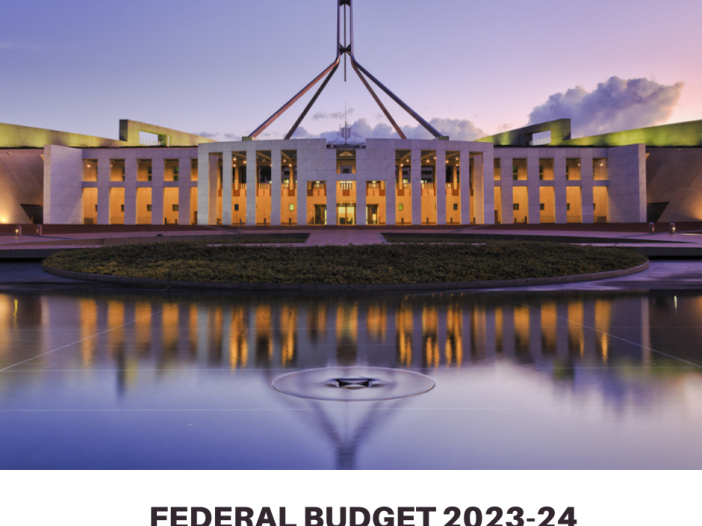
Some measures will be introduced to smooth the path of doing business in the latest Federal Budget, which has as its main focus the assistance of Australians in need.
The Federal Budget for 2023–24 is the second handed down by Australia’s Treasurer, Dr Jim Chalmers. The budget announcement includes a surprise small surplus of 4.2 billion for the 2022–23 financial year, the first since 2007–08. The symbolic surplus is based on better-than-expected conditions, including higher prices for key exports and a strong labour market with wage growth and low unemployment.
For small to medium businesses, welcome budget features include power bill relief that will help an estimated 1 million small businesses, an extension of the instant asset write-off and support for cash flow.
Reducing the cost of doing business
The Government has announced some measures aimed at boosting efficiencies and reducing expenses involved in operating a business. Key offerings for those running small and medium enterprises include the following:
$20,000 Instant Asset Write-off: Small businesses with an aggregated annual turnover of less than $10 million can immediately deduct their eligible depreciating assets costing less than $20,000. This measure is estimated to decrease receipts.
Ease of doing business: Initiatives worth $2 billion are designed to simplify the interface between businesses and government services. The ‘Buy Australia Plan’ will help businesses compete for tenders, update the AusTender system, and improve SME awareness of federal government contracts.
Industry growth program for SMEs: The Government will improve support for SMEs and startups, with $431.9 million over four years from 2023–2024 (and $79.2 million per year ongoing). Eligible businesses that focus on priority areas listed in the National Reconstruction Fund can get help commercialising their concepts and expanding their operations.
$20,000 Small business energy incentive: Most small and medium businesses could be eligible for up to $20,000 in tax relief under the Energy Incentive scheme if they invest in energy-efficient equipment or electrification of cooling and heating systems. Eligible assets or upgrades must be used or installed between 1 July 2023 and 30 June 2024.
Energy Bill Relief Fund: Small businesses will get power bill rebates through the jointly funded Energy Bill Relief Fund from 1 July 2023.
Small business cyber wardens: A $23.4 million program to train in-house cyber security wardens will help small businesses combat cyber threats. The Council will deliver training for Small Business Organisations of Australia.
Migration Program Skill Stream Increase: The Permanent Migration program will return to higher levels, with a greater percentage (70%) allocated to the Skill Stream.
Pacific Australia Labour Mobility: The PALM scheme, which provides working visas for people from Pacific countries, will be expanded with an extra $370.8 million in funding over four years.
Workforce assistance
For Australia’s small to medium business workforce, the budget provided key changes and benefits, including the following.
Fee-free TAFE places: 300,000 new fee-free TAFE places will be available to train Australians in critical and emerging sectors.
Superannuation harmony: Superannuation and salary payment will be more synchronised from 1 July 2026 to reduce the risk of unpaid superannuation and boost retirement savings. Employers will be required to pay superannuation on the same day as wages. The other fundamental budget change to superannuation is reduced tax concessions for balances above 3 million from 1 July 2025 (about 0.5 % of super holders).
Pensioner work extension: There will be an extension of measures enabling aged and veteran pensioners to work extra hours. Pensioners can earn up to $11,800 before their pension is reduced, supporting pensioners who want to do some work without losing their pension.
International student work hour increase: Until 31 December 2023, students in the aged care sector will be exempt from the 48-hour per fortnight cap.
Tougher conditions ahead
The Budget changes will compel some small businesses to become more rigorous. The ATO will get extra funding to improve GST compliance among businesses ($588.8 million over four years).
Looking ahead, Budget forecasting indicates there could be significant challenges for Australians in 2023–2024, with predictions that unemployment will rise and GDP growth will halve to just 1.5%. However, if inflation is tamed, it is expected that there could be real wage growth.
Consult your accountant and work together to prepare your business or NFP for upcoming changes in the financial landscape.
Get in touch with our team at Next Dimension Accounting if you would like more information or to discuss any of the elements outlined in last night’s Budget announcement.






